Doctors then put you through thousands of dollars’ worth of tests. The literature says the average patient will spend $4800 - $9300 a year for 3-5 years before all the tests prove negative and then the doctor sort of shrugs his or her shoulders and says, "I can't find anything wrong with you. You must have Fibromyalgia."
So it's a process of elimination. As a result, patients are left feeling stigmatized, because no one believes them. Until this test was available there was nothing objective to confirm the diagnosis.
Why does the current FM diagnosis tend to take so long?
It's because doctors have for the most part thought that Fibromyalgia is a "bogus diagnosis" – that there isn't anything objectively wrong with these individuals and that it is a subjective disorder that primarily afflicts neurotic, hysterical, hypochondriacal women.
What we now know through research and what others have said is it happens in 1 out of 12 women, 1 out of 20 men and we also know that it afflicts children.
We also know that up until now the diagnosis of this illness was thought to be in the bailiwick of either neurologists, rheumatologists or psychiatrists but our detected biomarkers prove that there is an immune system process that is affiliated with Fibromyalgia.
Now, is Fibromyalgia just an abnormality in the body's immune system or is Fibromyalgia causing an immune system abnormality? That part we do not know yet, but what we are able say unequivocally is that there is this unique immune system set of biomarkers in Fibromyalgia.
Where there has been some criticism concerns the question, "How do you know these biomarkers are unique to Fibromyalgia? Maybe they are also happening in other rheumatic disorders such as, lupus or rheumatoid arthritis."
We are currently in the middle of a related research protocol with a world expert in fibromyalgia, Dr. Dan Wallace. I can tell you unequivocally, based upon this research that these biomarkers are not seen in lupus or in rheumatoid arthritis. They are unique to Fibromyalgia.
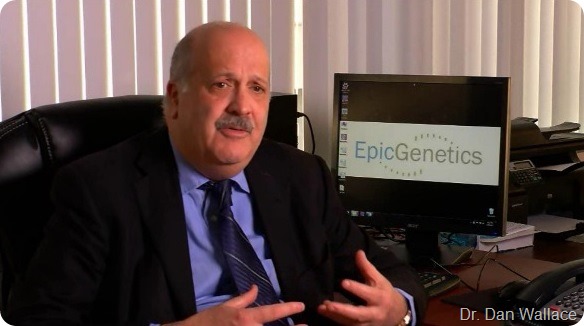
We plan to submit a manuscript regarding these findings, hopefully, in the next 60 - 90 days.
I can also tell you that in publishing our work we submitted our findings to the American Association for Clinical Chemistry, the largest umbrella organization for laboratories and departments of pathology throughout the United States, and we won their award for outstanding research in 2012 because of our discovery.
Why are many patients misdiagnosed or dismissed by their doctors?
It's because if you were to poll 100 doctors I would bet that 90 out of 100 wouldn't believe that there is something called Fibromyalgia.
As a consequence when you have that mind-set, healthcare practitioners are always looking for something else to attach to this set of symptoms.
So you end up getting frustrated patients and frustrated doctors. It's not a very healthy combination.
Why did EpicGenetics decide to develop a test for FM?
It was pure serendipity. EpicGenetics is an umbrella for research programs that we have been maintaining.
We have research programs at the University Of Illinois College Of Medicine in Chicago and at the Harvard School of Public Health in Boston.
We do research in areas where there is a need for developing a diagnostic test where none exists, but yet there is a great demand.
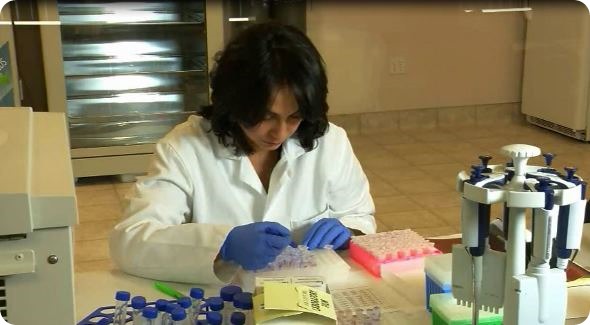
In Fibromyalgia it was purely serendipity. I was personally asked to evaluate 17 individuals who were filing for disability for Fibromyalgia.
When I saw these people, I originally was a Fibromyalgia-skeptic - I was in that group of 90 out of 100 physicians who said there is no such thing as Fibromyalgia.
What we ended up doing is we said, "Could there be a common denominator in these patients? Why do these people all have such similar symptoms? Why do their symptoms literally range from head to toe? Starting from mental fogginess, sometimes called "Brain Fog", to diffuse pain to fatigue to depression, gastrointestinal upset often called an Irritable Bowel Syndrome, anxiety, depression, literally what could be the common denominator that would explain this head to toe situation?"
The only one we could think of was the immune system. So we decided to take these 17 people and compare them to 17 healthy people. We did an analysis of multiple immune system markers in both groups.
Much to our surprise we found an incredible set of changes in immune system proteins called chemokines and cytokines in the patients with Fibromyalgia. We were absolutely literally blown away when we detected these changes.
So we said, "We need to do a large clinical study!" Therefore, we did a much larger study, also at the University of Illinois, where we did the pilot study of 17 patients with Fibromyalgia and 17 who were healthy, a total of 34. We did a larger clinical study of over 200 patients.
It took us quite some time, because we only wanted to look at patients who had Fibromyalgia and no other confounding variables, no other rheumatic or neurologic or immunologic disorders that could cloud the results. It took almost two years.
We then submitted our results for publication. They were published in a peer-reviewed journal - BMC Clinical Pathology.
We wanted to do two things, we needed to have something in a peer-reviewed journal but we also wanted something called open access, meaning when you accessed the article on the internet you wouldn't just get that one paragraph abstract, you would get the entire article.
We chose that judiciously and purposely to get what we thought was the best of all worlds combination. If you access the article, you will see that the article has been cited so many times it now has a special designation from BMC.
http://www.biomedcentral.com/1472-6890/12/25
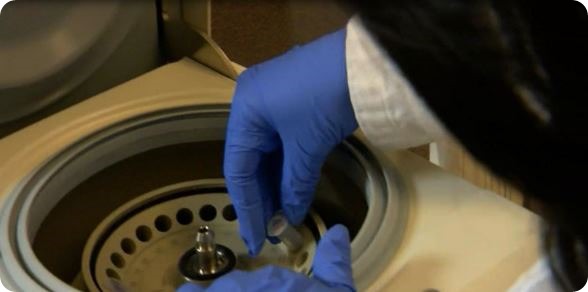
What did the development process involve and what hurdles had to be overcome?
The biggest hurdle was getting enough patients who just had Fibromyalgia and not any other illness that could be impacting their immune system.
It was a very expensive process, more than a million dollars was spent on the research. It was extensive and lengthy.
How was it funded?
It was funded by my own medical corporation.
How does the FM/a® test work?
We isolate a particular type of white blood cell called the peripheral blood mononuclear cell and we challenge these cells to determine how healthy they are functioning and producing these vital immune system proteins, cytokines and chemokines.
By that process we know (because of the analysis we did in that pilot study of 34 and in the clinical study of over 200) what parameters to look for and if the patient doesn't meet those parameters we can say, "They don't have Fibromyalgia."
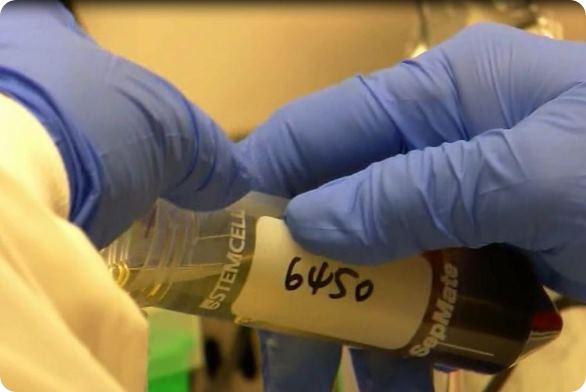
How sensitive is the test and how does this compare to other tests on the market?
The sensitivity of the test when we first published was over 93%. It is now around 99%. No test is 100%.
The specificity of the test when we first published was a little over 89%. It's now around 95%.
So this test is about as sensitive as a blood test for HIV. That says an awful lot.
Where is the test available and how do patients access it?
The test is easily available. Here in the United States you cannot have a laboratory test without a physician, nurse practitioner or physician assistant ordering it.
So you can ask your own healthcare provider to order the test. They can send us an email or fax us a prescription order.
If you don't have a physician or can't afford to go to a physician, you can fill out a health questionnaire on our website. If you have enough "yes" answers regarding Fibromyalgia-related symptoms, one of our own EpicGenetic physicians will approve the test at no additional charge.
Then all we need to run the test is to have the blood drawn. We need less than an ounce of blood - about two thirds of an ounce.
We can arrange for your blood to be drawn at a draw station. We have an affiliation with a company that offers it. There are over 2000 draw stations in the United States.
If you can't get to the draw station (by the way that is also included in the price), we can send a licensed phlebotomist to where you work or where you live and get your blood that way - again, no additional cost for doing it.
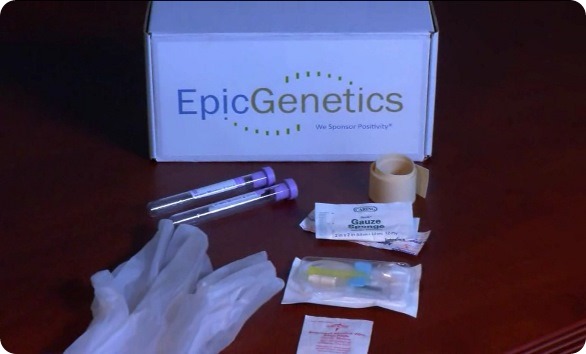
So is the test currently only available in the US, or is it available in other countries?
No, we could obtain the test specimen from anywhere, as long as we can get the specimen to us within 24 hours. The cells are viable for only 24 hours.
We could, for example, get specimens from Europe. They would just have to be sent by FedEx.
Right now in the test fee of $744, the cost of FedEx is over $80 in the United States. If there is something additional beyond that to get the specimen, say from Europe we would just ask the patient to pay that extra fee.
To have the blood drawn and get FedEx to send it us, of that $744, those steps cost us over $200. So that is one of the reasons why the test is priced as it is.
Why do many people not consider FM to be a ‘real disease’ and do you think this test will change their opinion?
Oh my Gosh! That's what we think our greatest accomplishment is – to legitimize the diagnosis. To prove that it is a real disease. To get rid of this "urban legend" that all these people are "just crazy."
You know patients with Fibromyalgia look perfectly healthy and people say, "How can you possibly be sick?" It's very easy to be sick like this. It's an immune system abnormality.
That's why we have learned that Fibromyalgia patients have a higher rate of divorce, because spouses don't believe them. They have major difficulties getting family members and friends to believe them.
I was in Chicago about a month ago and a lady came to see me to have her blood drawn. She knew she had Fibromyalgia. I said, "Are you getting the test because you can't work? Are you filing for disability?" She said, "Oh no! I'm paying for the test because my parents who are in their 80's refuse to believe that I'm sick! I'm just getting the test to prove to them that I'm really sick!"
That's exactly what you’re seeing. These people want justification and vindication to prove that they are ill, that there is something wrong here.
We're hoping that we change this terrible and wrong concept in the minds of practitioners that there is nothing wrong with these individuals.
That's our greatest hope, that we're getting rid of this terrible idea that it's a "bogus illness."
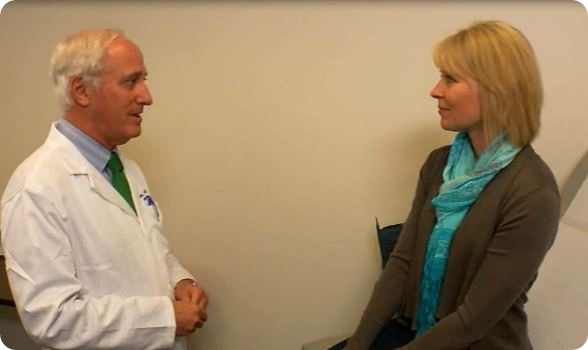
How do you think the future of FM diagnosis will develop?
We are hopeful that firstly physicians and front-line medical practitioners including nurse practitioners and physicians assistants will say to a patient, "Before we put you through thousands of dollars of needless tests and spend years searching to determine whether your symptoms are due to Fibromyalgia, let’s cut to the chase and go right to this test. If we do this test and it's positive, we’ve answered the question and we will get you your results in 5 - 7 days." That's all it takes to get their test results.
We are also hopeful that we can get some drug companies on board who will say, "My, it's an immunologic test, we need to develop treatment for this immune system problem."
So far we haven't had that happen. I don't know why. With so many people having Fibromyalgia based on the Mayo Clinic study that says it affects 1 out of 12 women and 1 out of 20 men. That's an awful lot of people. That's over 20 million people just in the US. That's almost as many people as who have diabetes.
What are EpicGenetics plans for the future?
EpicGenetics continues to do research. We are about to embark on doing genomic studies on patients with Fibromyalgia.
Everybody who gets the Fibromyalgia test is asked to sign what is called an informed consent, so that we can get the RNA out of their cells and look for gene markers.
If this is such a prevalent illness, perhaps there are gene markers for it. Such a discovery would potentially lead to a cure.
We also have a research program at the Harvard School of Public Health. We are on the cusp of developing the first-ever blood test that can diagnose Asthma.
We are also negotiating with the Cornell Medical School in New York City to study Fibromyalgia in children to determine the prevalence of Fibromyalgia in children and whether some children may have Fibromyalgia and are unfortunately being misdiagnosed as ADHD instead.
Where can readers find more information?
www.thefmtest.com
About Dr. Bruce Gillis
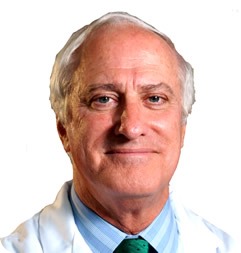 Bruce S. Gillis, M.D., M.P.H., is the Founder of EpicGenetics, a biomedical company dedicated to developing conclusive diagnostic tests for complex medical conditions. Under Dr. Gillis’ leadership, EpicGenetics has developed the first diagnostic test for fibromyalgia – The FM/a® Test.
Bruce S. Gillis, M.D., M.P.H., is the Founder of EpicGenetics, a biomedical company dedicated to developing conclusive diagnostic tests for complex medical conditions. Under Dr. Gillis’ leadership, EpicGenetics has developed the first diagnostic test for fibromyalgia – The FM/a® Test.
Recognized for his exceptional research in multiple peer-reviewed manuscripts, Dr. Gillis has established himself as a physician, an entrepreneur and as a medical researcher.
Dr. Gillis for the last several years has maintained active research programs at both the University of Illinois College of Medicine at Chicago and the Harvard School of Public Health.
Dr. Gillis received his undergraduate and medical education at the University of Illinois at Chicago and concurrently also attended the Harvard School of Public Health where he received a Masters in Public Health degree. In the span of seven years, Dr. Gillis completed medical school, his Harvard Masters program, two medical residencies and two medical fellowships.
He has had faculty positions both at the University of California, Los Angeles and the University of Illinois College of Medicine at Chicago.